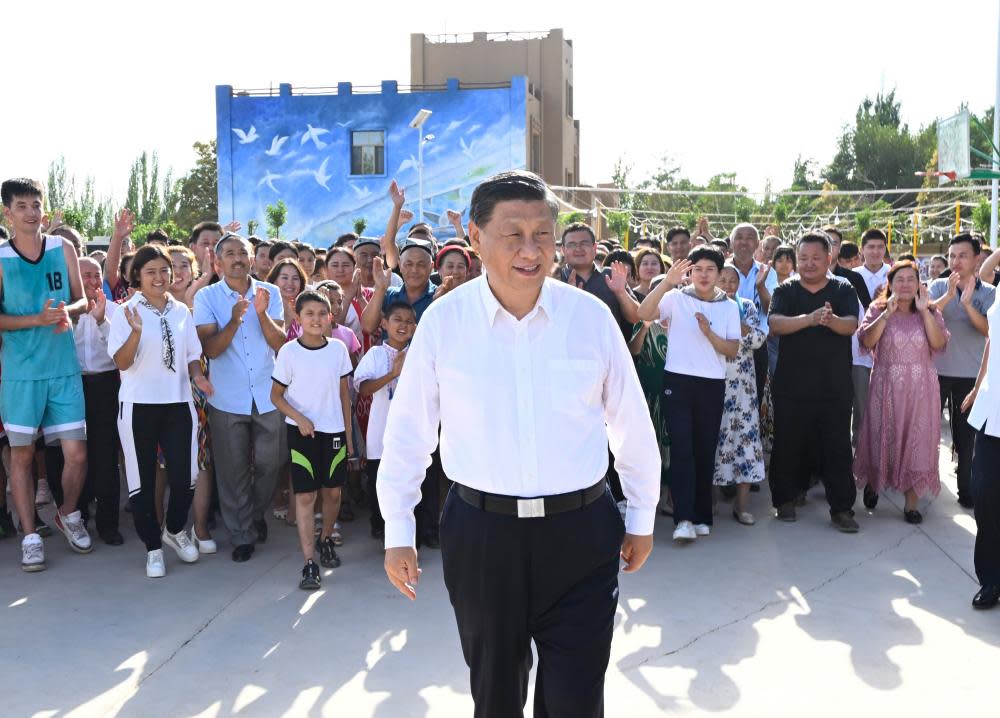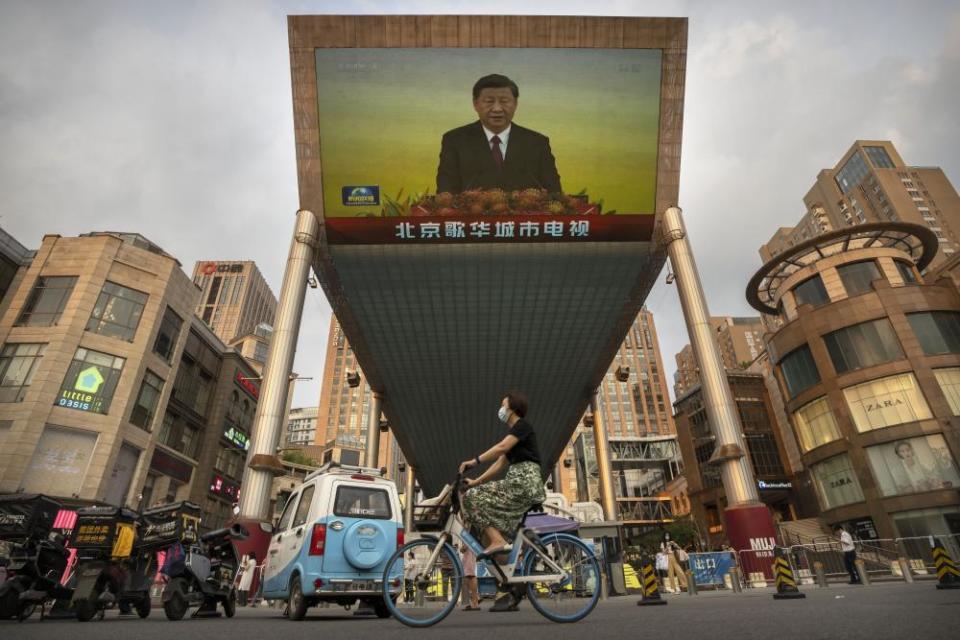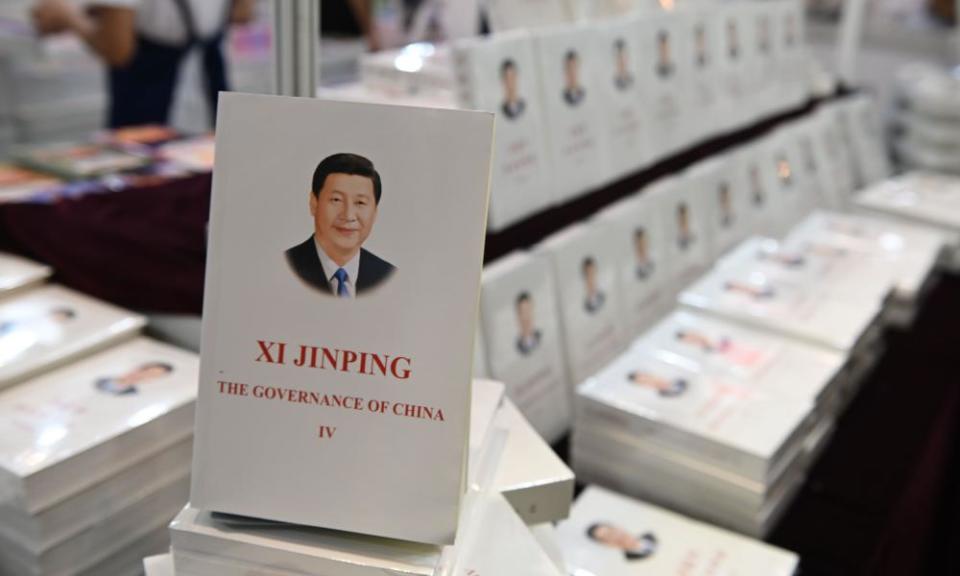Xi Jinping faces stumbling blocks, as crucial Communist party meeting looms

Having presided over a grand celebration of the party’s centenary and suppressed mass Covid outbreaks last year, China’s president, Xi Jinping, told his countrymen and women in his 2022 New Year address that the Chinese nation was “making confident strides on the path toward the great rejuvenation”.
But so far, the Year of the Tiger has been full of stumbling blocks. First, the draconian Covid lockdowns in major cities such as Xi’an and Shanghai, the commercial capital, sparked outcry and disrupted global supply chains. Then the economy showed signs of a serious slowdown, leading to growing unemployment among the young. Xi’s “no limit” partnership with Vladimir Putin also made China a target of western criticism.
And in the past fortnight or so, a whirlwind trip by the US House speaker, Nancy Pelosi, caused real fear of a miscalculation over Taiwan, which Beijing has long claimed its own.
Last week, shortly before the People’s Liberation Army (PLA) began a series of drills surrounding Taiwan, the Chinese air force reminded the citizens of their role by invoking the memories of Du Fengrui, a PLA pilot who 64 years ago shot down two Kuomingtang jets in the Taiwan Strait but was killed in a subsequent attack.
“When it comes to protecting the interests of the motherland, the hero’s blood and pride are always in us,” said Fu Dinghai, a pilot at the Eastern Theatre Command. “As Du’s successors, we are also unafraid of bleeding and sacrificing … [we shall] resolutely complete the tasks given to us by the party and the people.”
Related: Wave of nationalistic fervour washes over China amid Pelosi visit to Taiwan
For a few days, there was a sense of a crisis in the making over the island of Taiwan. The dramatic exercises drew the world’s attention – as well as some condemnation. The exercises eventually wound down on Wednesday. Yet, analysts say the real long-term crisis has just begun.

“Both the US and China are realising that events last week underscore that we are moving towards a prolonged crisis in Taiwan,” said Jude Blanchette, Freeman Chair in China Studies at the Center for Strategic and International Studies (CSIS) in Washington DC. “For Xi, it’s as much of a challenge to manage the crisis as it is for Biden.”
China’s propaganda machine has been on overdrive since Pelosi’s visit, creating a fierce sense of anger and determination. “Pelosi’s sneaky visit [to Taiwan] could help accelerate the unification of the motherland,” one popular WeChat post wrote last week. China’s foreign minister, Wang Yi, also called Taiwan’s leader, Tsai Ing-wen, “unworthy”.
In its first white paper in 22 years, Beijing on Wednesday reiterated its preference to unite Taiwan by peaceful means. “But we will not renounce the use of force, and we reserve the option of taking all necessary measures,” it said. The line that Beijing would “not send troops or administrative personnel to be based in Taiwan” after “unification” – which appeared in both 1993 and 2000 white papers – had been removed from the latest version.
But despite the heightened rhetoric and unprecedented reaction, Xi does not want a crisis at the moment with the US – at least for now. According to the Wall Street Journal, Xi on 28 July tried to persuade Biden to stop Pelosi going to Taipei, but he also indicated that he had no intention of engaging in a war with the US and stressed the need for “maintaining peace and security”.
Related: Xi Jinping tells Joe Biden not to ‘play with fire’ over Taiwan in two-hour call
“In the run up to this year’s party congress, where Xi is expected to win a third term as the supreme leader, his top priority is to manage various risks and ensure stability,” said Prof Dali Yang, a China expert at the University of Chicago. “Xi often talks of stability as the bottom line, but even as powerful as him, it’s pretty difficult to ensure everything is under control with Covid-19.”
One of the biggest headaches for Xi and his bureaucrats is the economy, which has been severely affected by repeated lockdowns this year. In May, Premier Li Keqiang called a national meeting to address the dismal job market. He pulled no punches, kicking things off with a stern warning on jobs: the “current employment situation is complex and grim”, he said, urging more support for small and medium businesses.

Li’s warning came as China is expected to miss this year’s target of GDP growth of 5.5%, which he set in March. Since Li’s speech China’s economy continues to disappoint. According to figures from the statistics bureau in July youth unemployment had risen to 19.3%, in a trend that was accelerated by the full or partial draconian lockdowns imposed in major centres across China in the spring, including Shanghai.
Related: China sets lowest economic growth target in decades at annual meeting
Ironically, though, Xi’s zero-Covid policy is here to stay – at least for the foreseeable future. As Hu Chunhua, the vice premier, articulated in a follow-up speech to Li’s at the May meeting, China should continue to “unswervingly adhere to the general policy of dynamic clearance” he vowed, according to the official readout.
Yang said China was in a dilemma in deciding the next stage of its Covid management. “Because of China’s success in containing Covid in 2020 and 2021, Chinese media went into overdrive to emphasise the danger of the virus while China has also made a number of missteps in its vaccination strategy. Now as the world is opening up, China is still stuck in a tough spot.”
All of this will set the tone for Xi if he secures a third term later this year. Since presidential term limit was abolished in 2018, a consensus has been formed among Chinese insiders and foreign experts that the 69-year-old leader could continue his rule, in theory, indefinitely – breaking a recent convention. In the next few months, the ruling Communist party is set to hold its 20th party congress, and Xi is expected to be given a renewed mandate.
“From Xi’s perspective, he’s achieved a huge amount over his past decade in power, from anti-corruption domestically to making China more assertive internationally,” said Victor Shih, who teaches Chinese elite politics at the University of California, San Diego.
“The question for his third term is: whether he’s happy with consolidating the enormous gains he’s made, or he will venture into major gambles in order to achieve additional policy goals, such as ‘unifying’ Taiwan.”


